Information
Information
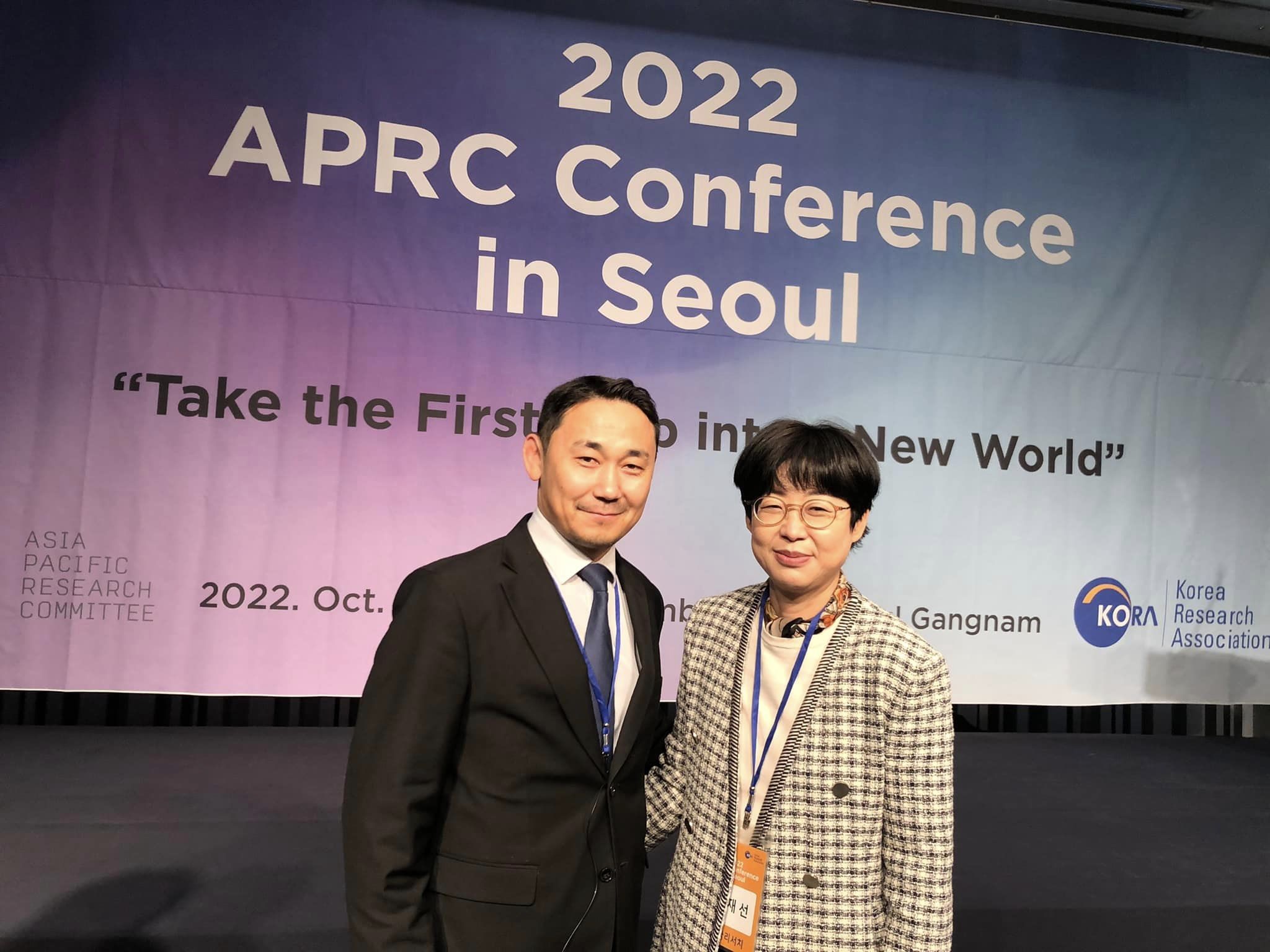
ASIA PACIFIC RESEARCH COMMITTEE CONFERENCE
Annual conference organized by the Asia-Pacific Research Committee was held in South Korea this year.This conference was held on October 21-22, 2022. CEO of SICA, J. Erdenebileg, participated in the conference and learned from the experiences of the international research institutions.
2022.10.21 19:59
0
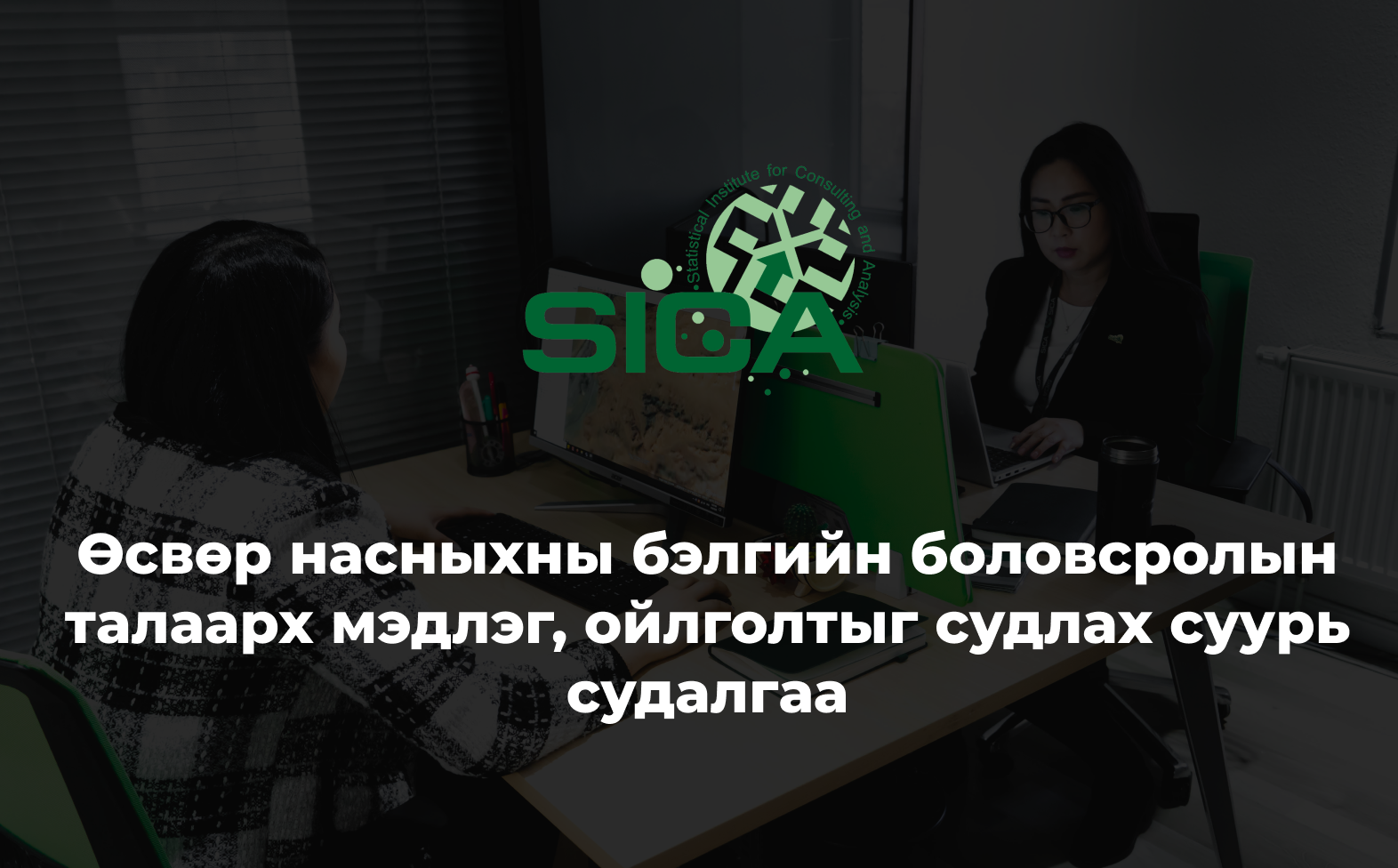
A baseline study to investigate the knowledge and understanding of adolescent sex education
SCOPE: Secondary schools of 5 districts in UlaanbaatarDATA COLLECTION METHOD: Quantitative researchSAMPLE SIZE: n=120TIME PERIOD: 2022.09.20 – 2022.10.20GOAL: The purpose of this baseline study is to investigate the current knowledge and understanding of adolescents about sex education, how and where they obtain information about sex education, and to clarify the barriers to obtaining information.MAIN FINDINGS: 100 boys and girls aged 12-18 years from 5 secondary schools in 5 districts of Ulaanbaatar were included in the study to determine the knowledge and understanding of adolescent sex education. In order to determine the knowledge and understanding of children in this regard, the research included 7 main topics. These include concepts of interpersonal relationships, the human body and systems, puberty, gender, sexual orientation, sexual health, and interpersonal violence. For children, their sources of information are limited to family, friends, and the classroom, indicating that their knowledge and understanding can be influenced by the views of others.
2022.10.20 00:00
0
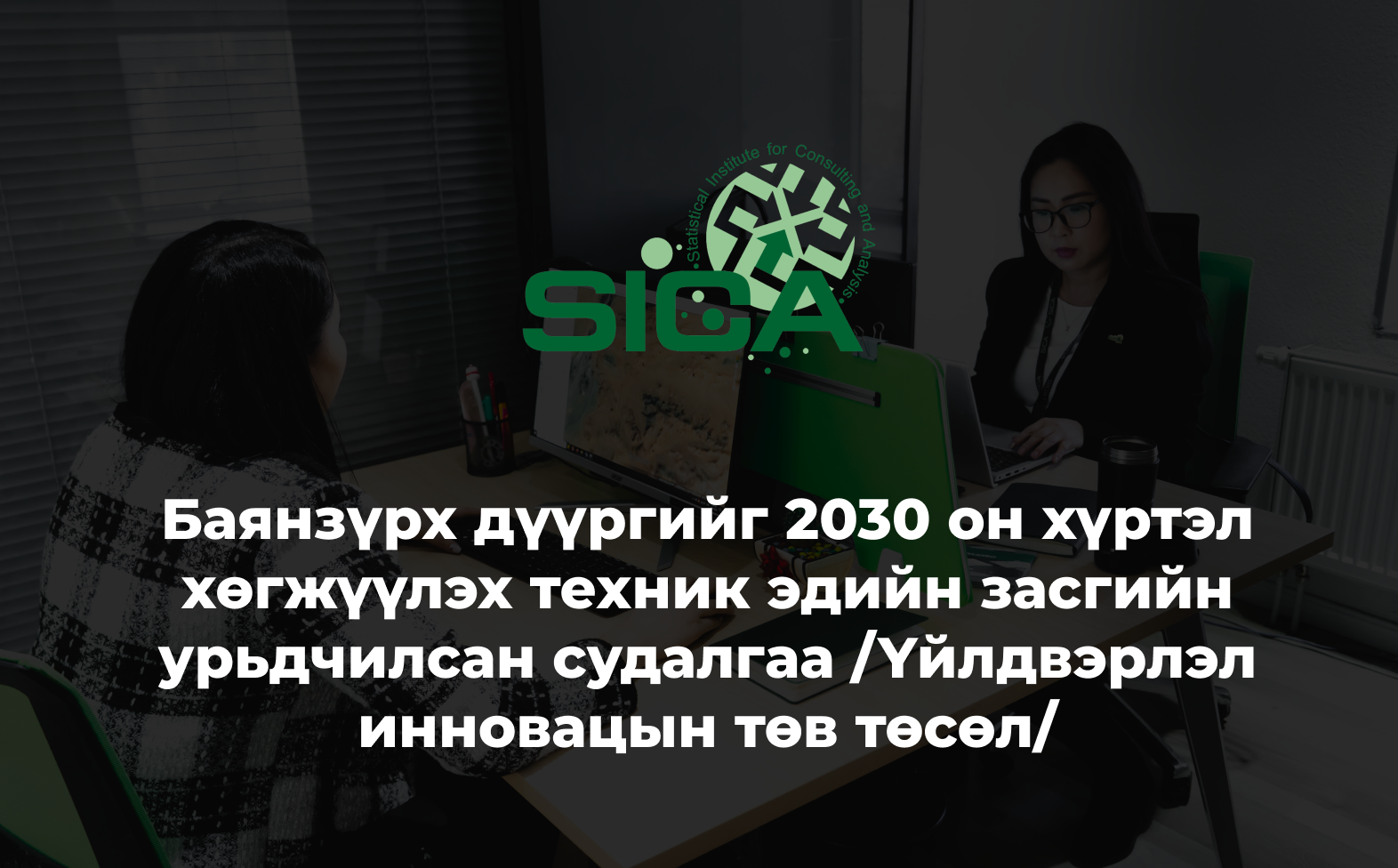
Preliminary technical and economic research for the development of Bayanzurkh district until 2030 /Industry and Innovation Center project/
SCOPE: Bayanzurkh district, Ulaanbaatar city, MongoliaDATA COLLECTION METHOD: Secondary researchTIME PERIOD: 2022.06.06 – 2022.10.20GOAL: The main purpose of this consulting service is to develop preliminary technical and economic research of the Bayanzurkh District "Industry and Innovation Center" /supporting production, innovation, and start-up business/ project.MAIN FINDINGS: Determined the content and objectives of the project, conducted research on introducing best practices of foreign countries, macro and microenvironment research, demand and supply analysis and infrastructure planning, financial and investment plan were developed. Implementation of the project will have positive impact on meeting the policy objectives within the scope of economic growth, improving business environment, creating jobs, and supporting production and services of the national development policy documents that defines long-term development ideals such as "Vision-2050" policy document, State action plan for 2020-2024 of the Government of Mongolia, and the general development plan of Ulaanbaatar until 2040. In addition, as reflected in the "Development Mapping 2030" policy document, the competitiveness index of the district and the level of labor participation will increase, creative industry will be developed, and the district will have a stable economy.
2022.10.20 00:00
0
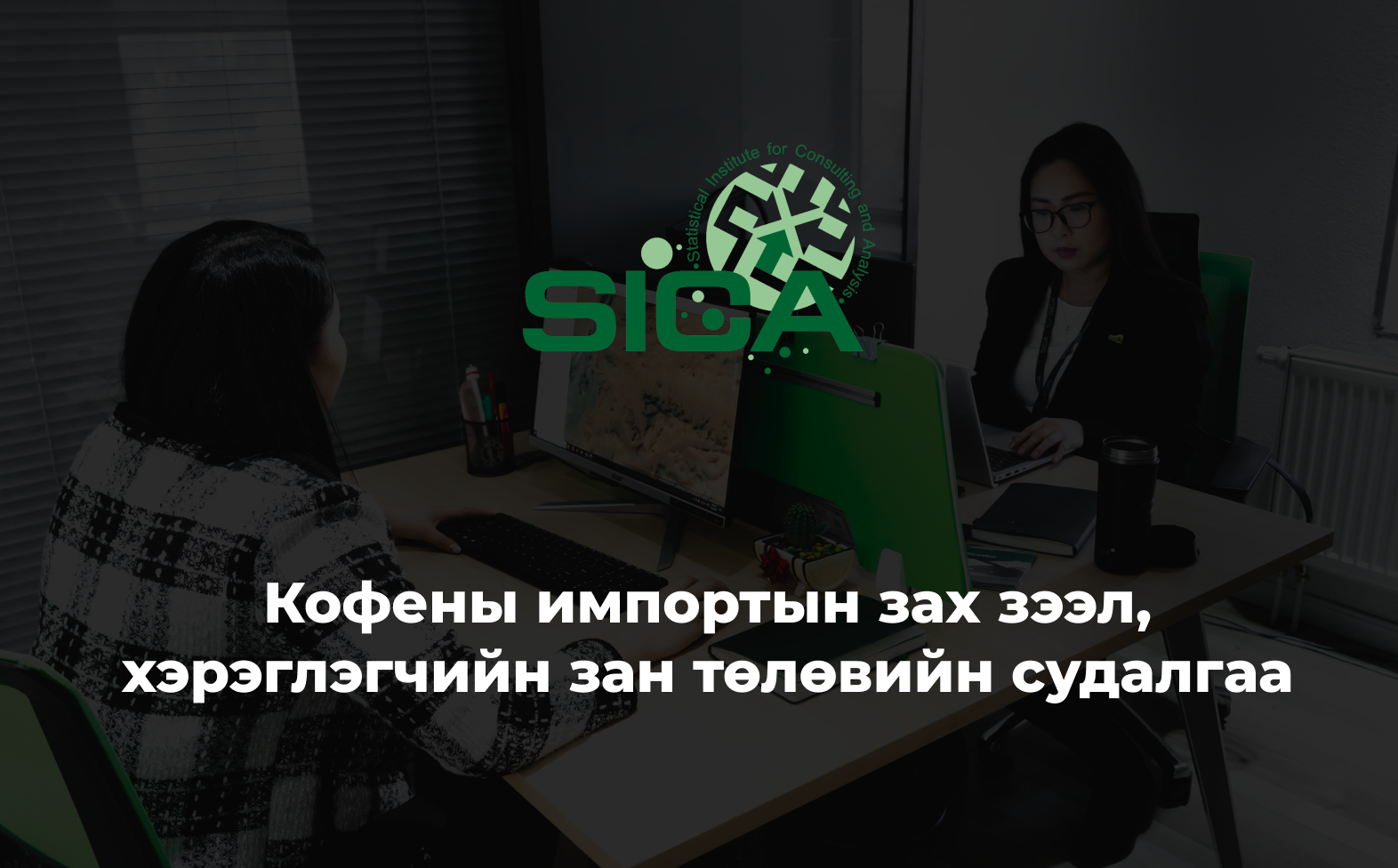
Imported coffee market and consumer behavior study
SCOPE: MongoliaDATA COLLECTION METHOD: Quantitative research and secondary researchSAMPLE SIZE: n=340TIME PERIOD: 2022.07.20 – 2022.10.12GOAL: The main purpose of this research is to study the current situation of Mongolia's coffee industry, Mongolians’ coffee consumption behavior, product import market, and quantitative data analysis.MAIN FINDINGS: While carrying out the study of coffee import, the research team conducted a survey of people living throughout Mongolia and studied their behavior in coffee consumption and the behavior of visiting coffee shops, respectively, and developed the results. In this way, entrepreneurs who carry out domestic and foreign coffee trade and coffee shop entrepreneurs can get comprehensive market information at a low price and save time. Most of the people who create demand for coffee in the country are 20-39-year-old working people, and they need to start the workday morning energetically, replenish energy during the day, and fight off sleepiness. 50.9 percent of all coffee drinkers use instant coffee, 46.5 percent use brewed coffee, and 2.6 percent use drip or immersion coffee. And when citizens were analyzed by their living location, coffee consumption varied. In terms of foreign trade, in 2021, our country made foreign trade of coffee worth about 43.0 billion MNT, which is a 32.0 percent increase from 2020 and a 130 percent increase from 2015.
2022.10.12 00:00
2
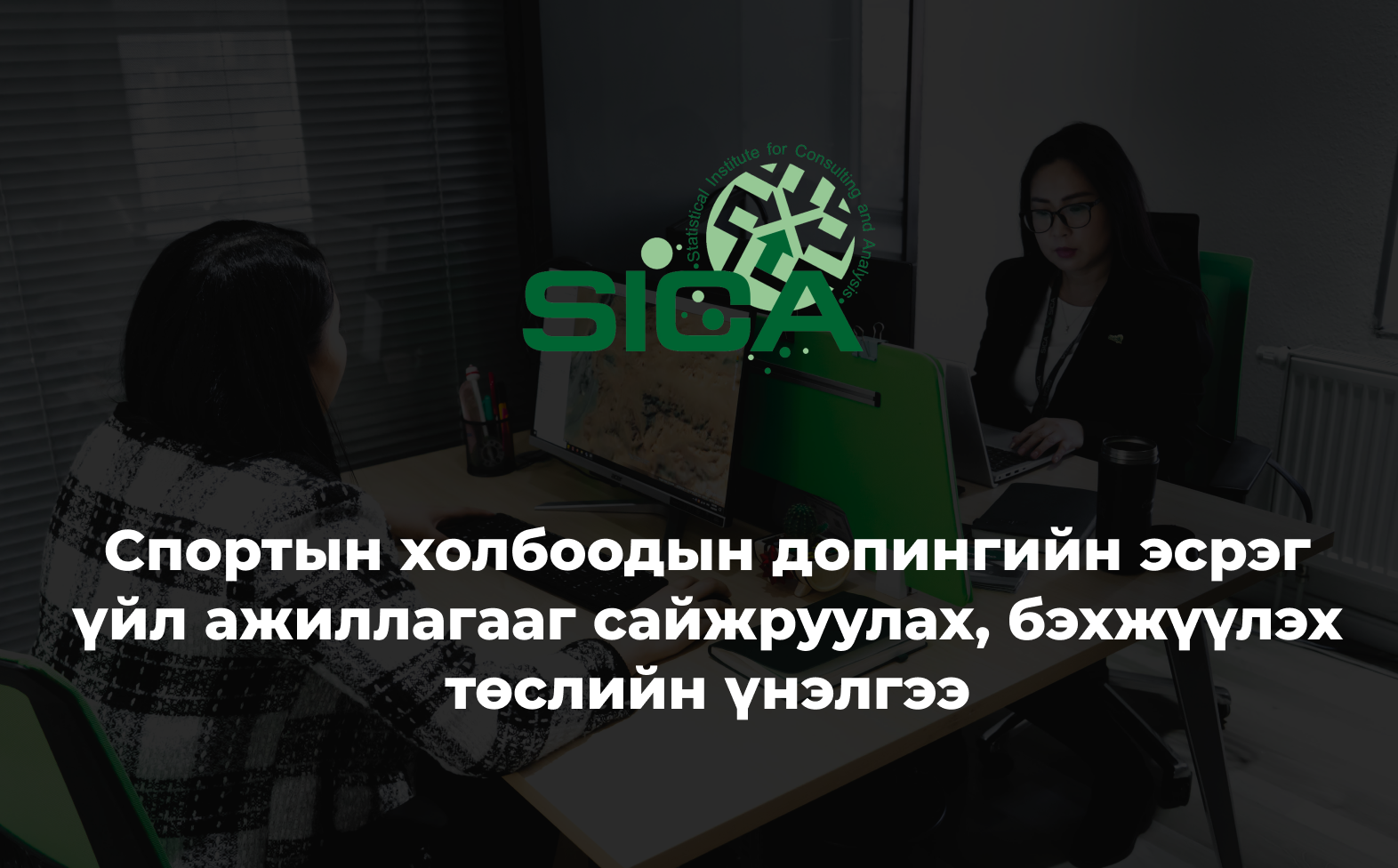
Evaluation of the project to improve and strengthen the anti-doping activities of sports federations
SCOPE: MongoliaDATA COLLECTION METHOD: Quantitative researchSAMPLE SIZE: n=90TIME PERIOD: 2022.09.12 – 2022.10.10GOAL: The purpose of this study is to determine the knowledge and skills acquired by the participants of the trainings organized as part of the "Improving and strengthening the anti-doping activities of sports federations" project and to evaluate the results of the trainings and the project.MAIN FINDINGS: In the framework of the project "Improving and Strengthening the Anti-Doping Activities of Sports Associations" funded by the UNESCO Sports Anti-Doping Fund, regional trainings are organized for the youth national team coaches, management, and executive staff of sports organizations to provide information and knowledge about anti-doping activities, control and doping substances and their side effects. We conducted M&E of the quality and results of the training. As a result of the evaluation, after participating in the training, the knowledge and information about doping of the sports industry improved from "insufficient" to "sufficient", which was a significant result that showed the importance and quality of the training.
2022.10.10 00:00
0
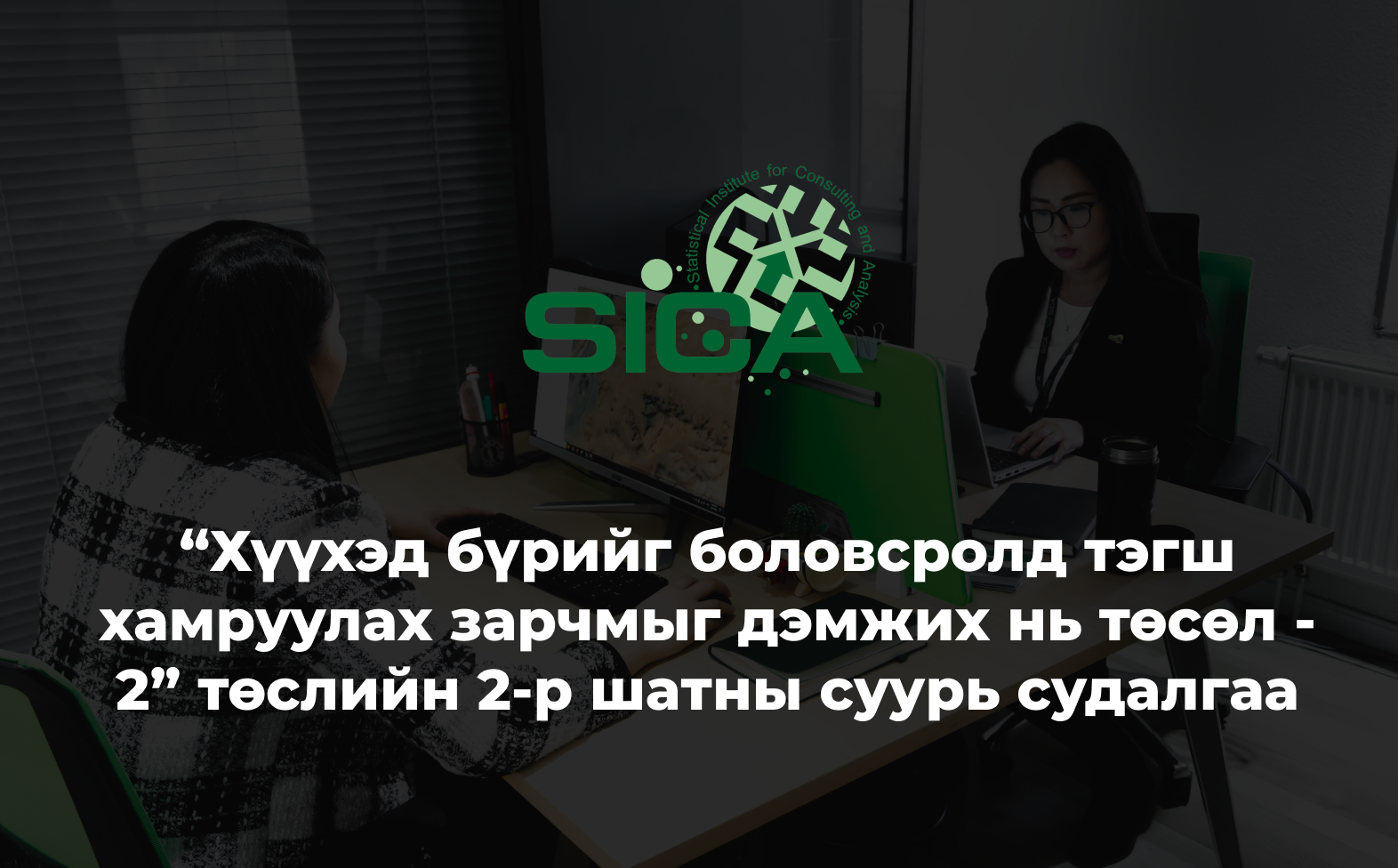
Baseline study of the 2nd stage of the project "Promoting Inclusive Education for Every Last Child-2"
SCOPE: The Health, Education, and Social Security Commission for Disabled Children of Ulaanbaatar City, Education Inclusion Support Council (EBC), Bayanzurkh, Chingeltei, Songinohairkhan districts, Khovd sum of Khovd province, and Uyanga sum of Uvurkhangai province were included in the baseline study.DATA COLLECTION METHOD: Quantitative, qualitative, and observational researchSAMPLE SIZE: n=480TIME PERIOD: 2022.05.02 – 2022.09.15GOAL: The purpose of this basic research is to study the current situation of inclusive education, to evaluate the methods and knowledge of teachers and parents working with elementary and middle school students, and to develop recommendations that can be used in the project based on the results of the research.MAIN FINDINGS: Readiness of 4th-5th grade special needs children studying in 8 target schools to advance from elementary to middle school; school conditions that support their physical, psychological, and learning processes; the knowledge, understanding and capacity of middle school teachers of 8 selected schools about inclusive education; elementary and middle school parents' understanding and support for their child's learning and development; policies and regulations aimed at the level of participation, inclusive education, and promotion of children with special needs from primary to secondary school were analyzed.
2022.09.15 00:00
0
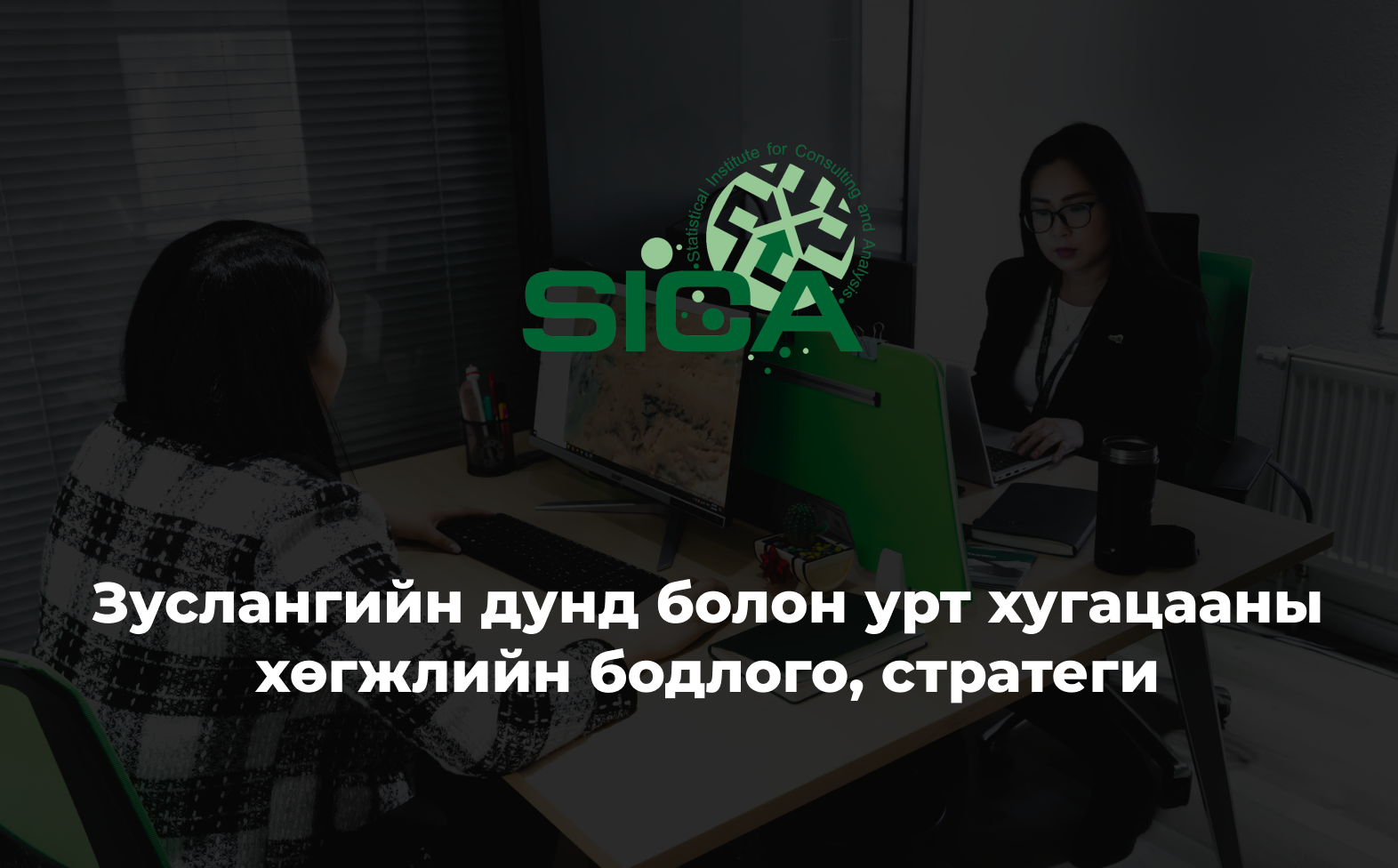
Developing policies and strategies for medium and long-term development of the summer camps
SCOPE: MongoliaDATA COLLECTION METHOD: Secondary researchTIME PERIOD: 2022.06.10 – 2022.09.15GOAL: This research work was carried out in order to develop a policy and strategy for the mid- and long-term development of the summer camp.MAIN FINDINGS: We assessed the conditions of the state of the natural complex and studied the market for summer services, and it was concluded that this project is feasible within the scope of the issues studied.
2022.09.15 00:00
0
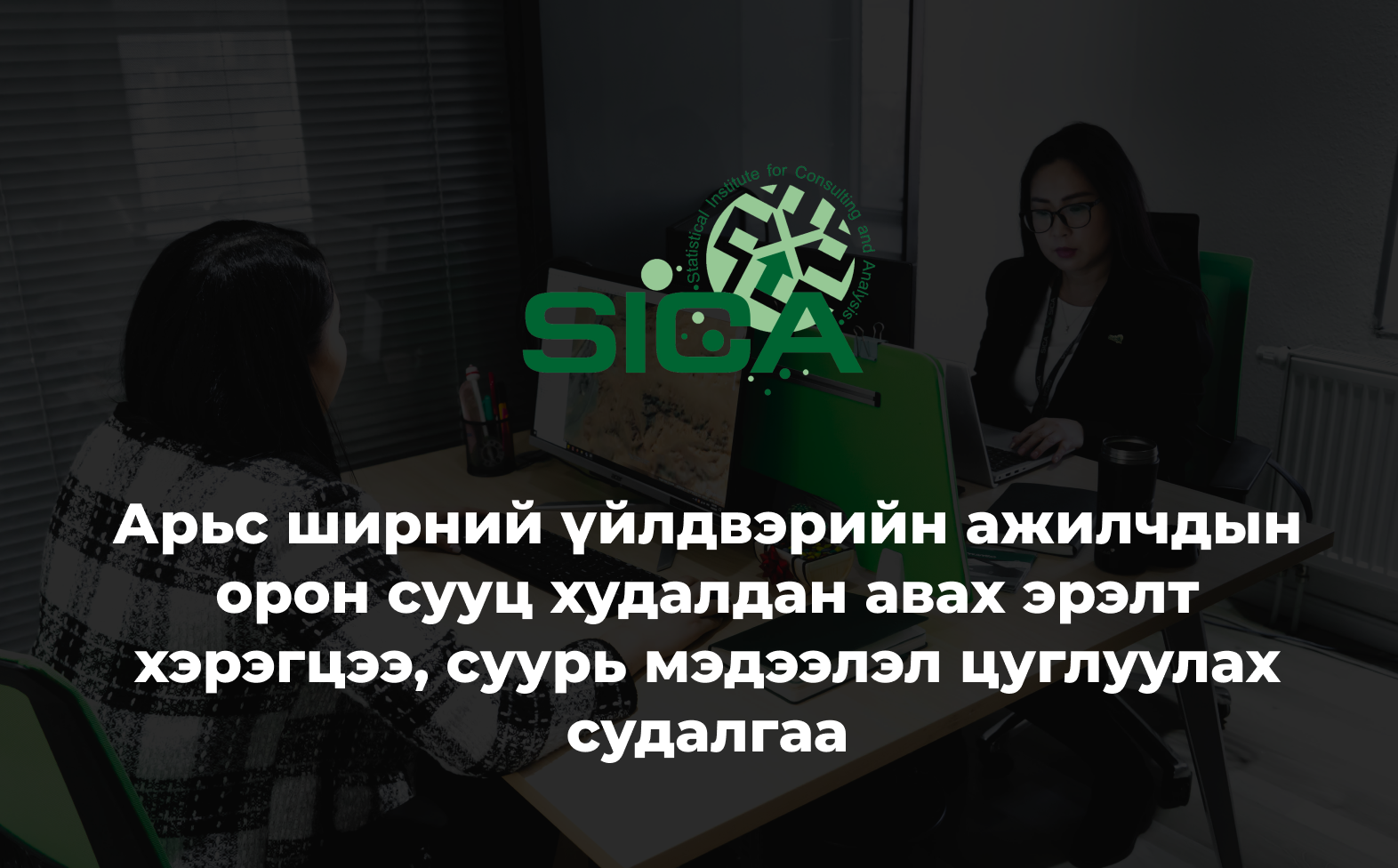
Research on demand and baseline data collection for housing of leather factory workers
SCOPE: Leather factory workersDATA COLLECTION METHOD: Quantitative researchSAMPLE SIZE: n=195TIME PERIOD: 2022.08.15 – 2022.09.15GOAL: In connection with the relocation of leather factories in Ulaanbaatar and the establishment of a light leather industry park in Emeelt, the relocation of leather factories will enable them to operate in safe and environmentally friendly buildings in accordance with standard requirements. The aim is to find out whether the workers of the factory will move to Emeelt. It is also to determine in detail the demand for housing for workers.
2022.09.15 00:00
0
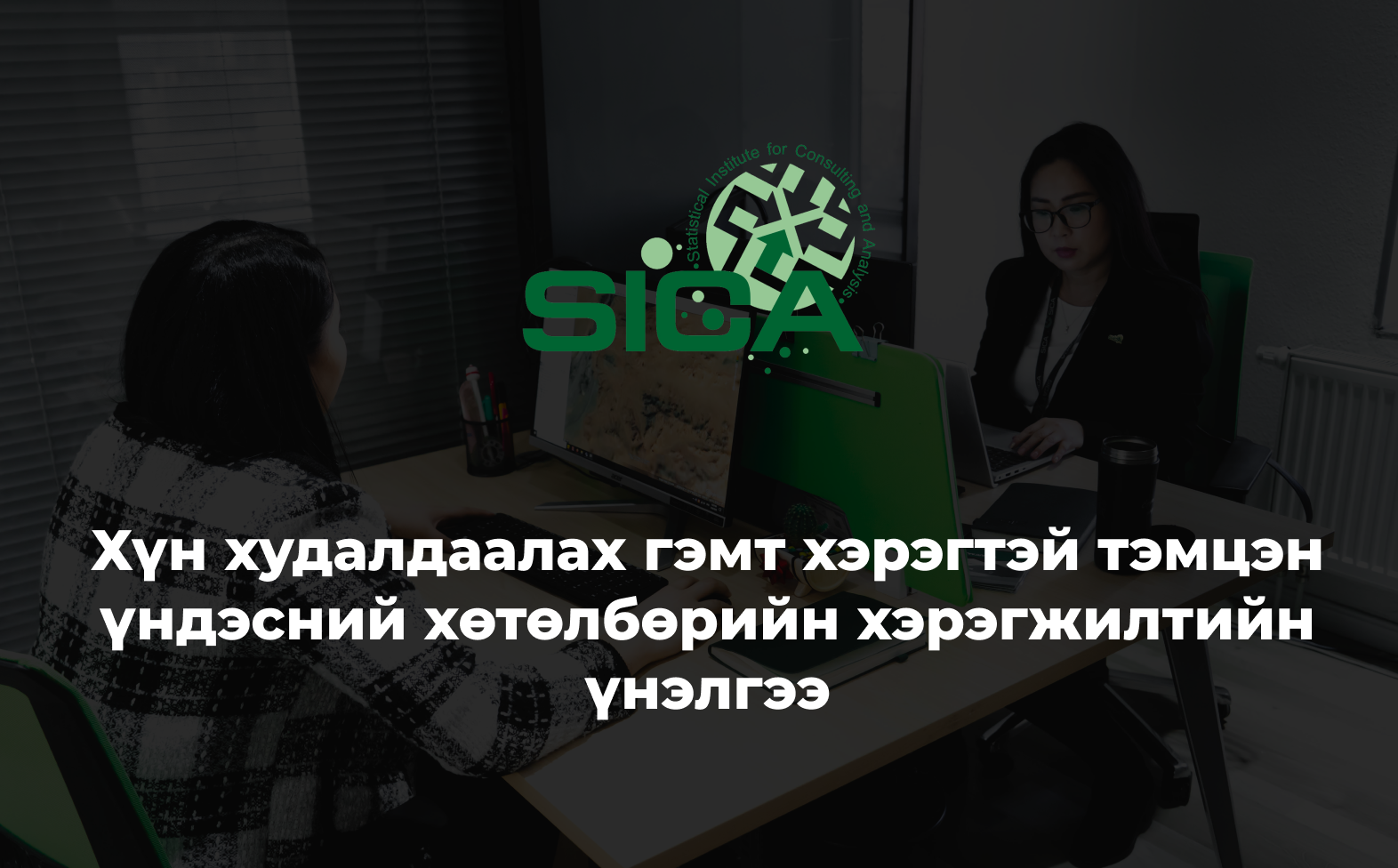
Evaluation of the implementation of the National Anti-Trafficking Program
SCOPE: MongoliaDATA COLLECTION METHOD: Qualitative research and secondary researchSAMPLE SIZE: n=24TIME PERIOD: 2022.06.13 – 2022.09.13GOAL: The evaluation of the implementation of the "National Anti-Trafficking Program" will be carried out using the methodology approved by the Law on Development Policy Planning and Government Resolution No. 374 of 2020, Appendix 7.8, and put forward specific suggestions and recommendations for the implementation of this type of program in the future.MAIN FINDINGS: The National anti-trafficking program was implemented in 2017-2021 within the framework of 4 main objectives. As part of the evaluation, in addition to individually evaluating the results of each activity, an evaluation of the effectiveness of the program was carried out in accordance with Annex 8 of Government Resolution No. 374, the problems related to human trafficking in Mongolia were discussed, and the current situation was shown with numerical data. The evaluation of program implementation increased by 9.1 percentage points from the mid-term evaluation conducted in 2019. Looking at each objective, the evaluation of the 1st objective was the highest, 18.5 percentage points. The good performance of non-governmental organizations working in the field of combating human trafficking was commendable. In the future, the participation of civil society should be further supported, and policy support tailored to the specifics of their activities should be provided.
2022.09.13 00:00
0